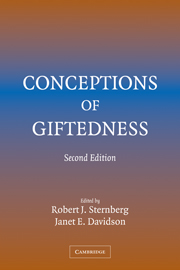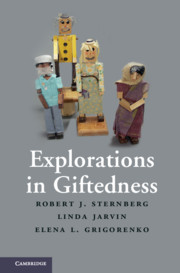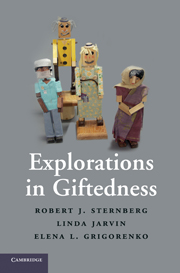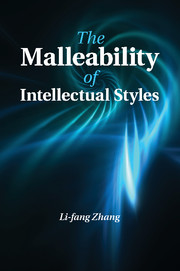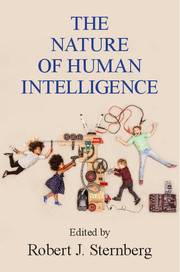Conceptions of Giftedness
What does it really mean to be gifted and how can schools or other institutions identify, teach, and evaluate the performance of gifted children? Gifted education is a crucial aspect of schooling in the United States and abroad. Most countries around the world have at least some form of gifted education. With the first edition becoming a major work in the field of giftedness, the second edition of Conceptions of Giftedness aims to describe the major conceptions of what it means to be gifted, and how these conceptions apply to identification, instruction, and assessment of the gifted. It will provide specialists with a critical evaluation of various theories of giftedness, give practical advice to teachers and administrators on how to put theories of gifted education into practice, and to enable the major researchers in the field to compare and contrast the strengths of their theoretical models.
- A book such as this one would help specialists in the field of giftedness choose a model with which to work
- Addresses need for translation of conceptions of giftedness into practice
- Provides teachers of the gifted with comparisons of conceptions and to know the similarities and differences among the conceptions
Product details
July 2005Paperback
9780521547307
480 pages
228 × 153 × 26 mm
0.64kg
12 b/w illus. 11 tables
Unavailable - out of print
Table of Contents
- 1. Gifted education without gifted children: the case for no conception of giftedness James Borland
- 2: Youths who reason exceptionally well mathematically and/or verbally: using the MVT:D4 model to sevelop their talents Linda E. Brody and Julian Stanley
- 3. A child responsive model of giftedness Carolyn M. Callahan and Erin M. Miller
- 4. School-based conception of giftedness Tracy L. Cross and Laurence J. Coleman
- 5. Giftedness, talent, expertise and creative achievement John F. Feldhusen
- 6. Permission to be gifted: how conceptions of giftedness can change lives Joan Freeman
- 7. From gifts to talents: the DMGT as a developmental model Francoys Gagne
- 8. Nurturing talent in gifted students of color Edmund Gordon and Beatrice L. Bridglall
- 9. The Munich model of giftedness designed to identify and promote gifted students Kurt A. Heller, Cristoph Perleth and Tock Keng Lim
- 10. Systemic approaches to giftedness: contributions of Russian psychology Ida Jeltova and Elena L. Grigorenko
- 11. Giftedness and gifted education Franz J. Monks and Michael W. Katzko
- 12. The importance of contexts in theories of giftedness: learning to embrace the messy joys of subjectivity Jonathan A. Plucker and Sasha A. Barab
- 13. Feminist perspectives on talent development: a research based conception of giftedness in women Sally M. Reis
- 14. The three-ring conception of giftedness: a developmental model for promoting creative productivity Joseph S. Renzulli
- 15. In defense of a psychometric approach to the definition of academic giftedness: a conservative view from a die-hard liberal Nancy M. Robinson
- 16. Creative giftedness Mark A. Runco
- 17. Genetics of giftedness: the implications of an emergenic -epigenetic model Dean Keith Simonton
- 18. The WICS model of giftedness Robert J. Sternberg
- 19. Beyond expertise: conceptions of giftedness as great performance Rena F. Subotnik and Linda Jarvin
- 20. Domain-specific giftedness: applications in school and life Joyce Van Tassel-Baska
- 21. Extreme giftedness Catya von Karolyi and Ellen Winner
- 22. Making giftedness productive Herbert J. Wahlberg and Susan J. Paik
- 23. The actiotope model of giftedness Albert Ziegler
- 24. (Discussion) The scientific study of giftedness Richard E. Mayer.

